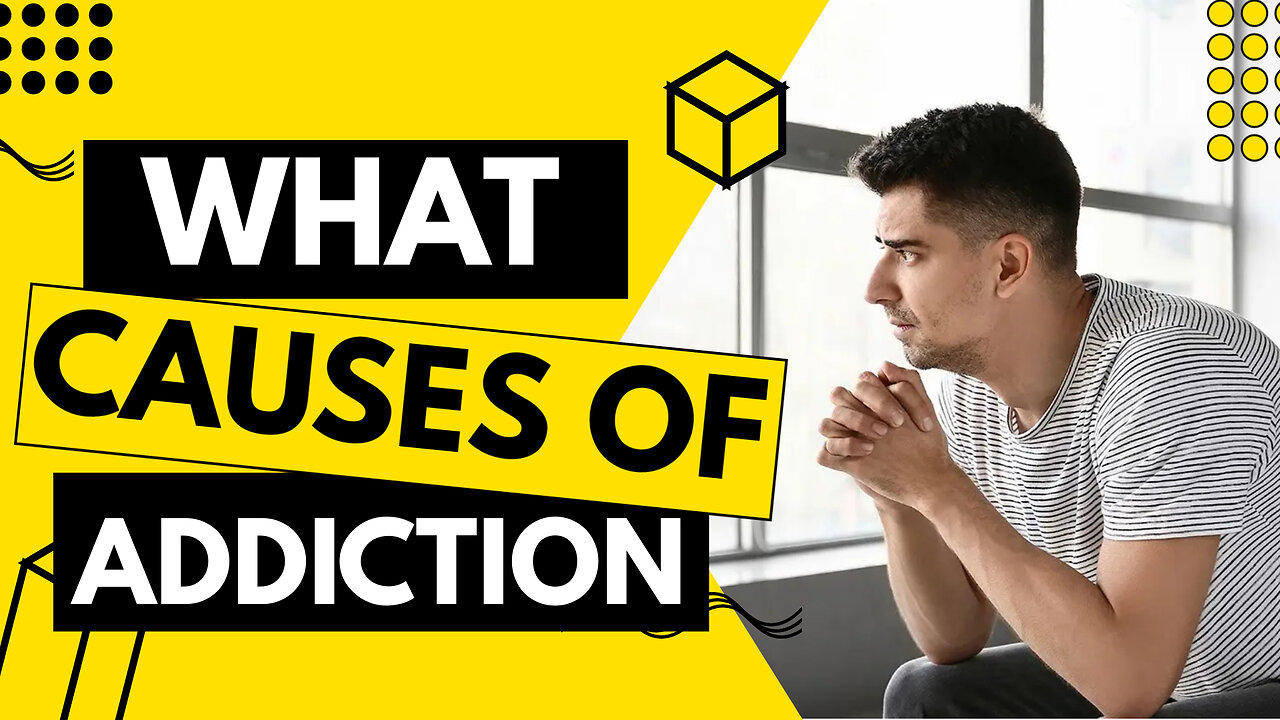Premium Only Content

What Causes Addiction - The Science of Addiction
In the realm of neuroscience, psychology, and public health, addiction remains a formidable challenge. From substance abuse to compulsive behaviors, addiction can exert a powerful grip on individuals, often leading to devastating consequences for both the affected individual and society at large. Understanding the intricate mechanisms that underpin addiction is crucial for developing effective prevention and treatment strategies. In this comprehensive exploration, we delve deep into the science of addiction, unraveling its causes, manifestations, and potential avenues for intervention.
Before delving into the science behind addiction, it’s essential to establish a clear definition of what addiction entails. Addiction is a complex condition characterized by compulsive engagement in rewarding stimuli despite adverse consequences. This definition encompasses a wide range of addictive behaviors, like play games, internet addiction, and compulsive eating.
At its core, addiction involves alterations in brain function and neurochemistry, fundamentally reshaping the way individuals process reward, motivation, and decision-making. Key neurotransmitter systems, including dopamine, glutamate, and serotonin, play pivotal roles in the development and maintenance of addictive behaviors. Dopamine, in particular, is implicated in the brain's reward circuitry, reinforcing pleasurable experiences and driving the cycle of addiction.
While environmental factors undoubtedly influence addiction, genetic predispositions also contribute significantly to an individual's susceptibility to addictive behaviors. Family and twin studies have provided compelling evidence of genetic heritability in addiction risk, with certain genetic variations increasing the likelihood of developing substance use disorders or other addictive behaviors.
Psychological processes, including stress, trauma, mental health disorders, and personality traits, also contribute to the development of addiction. Many individuals turn to addictive substances or behaviors as a means of coping with negative emotions or seeking temporary relief from psychological distress. Moreover, certain personality traits, such as impulsivity and sensation-seeking, are associated with an increased risk of addiction.
-
 9:51
9:51
Alabama Arsenal
11 hours agoRXD30Ti
80 -
 20:06
20:06
The Why Files
4 days agoSTRIPPED: When Earth's Shield Fails the Dead Will Rise | The Plasma Apocalypse
185K116 -
 12:26
12:26
EvenOut
13 hours ago $11.64 earnedWe Got Cosmestic Surgery That Went Wrong! Twin Switch-Up!
51.9K11 -
 1:15:07
1:15:07
Ami's House
19 hours ago $9.57 earnedWhat an ACTUAL Military Expert Thinks of the War in Gaza – Nick Freitas | FULL EP
30.6K22 -
 2:54:02
2:54:02
TimcastIRL
11 hours agoLiberal Media CAUGHT In BOGUS LEAK, Trump DID NOT Fire Mike Waltz, HE PROMOTED HIM | Timcast IRL
237K132 -
 9:05:24
9:05:24
MyronGainesX
18 hours ago $28.08 earnedSam Seder Embarrasses Ethan Klein, The Truth On MLK's Murder, Panel Debate w/ Anton Daniels
86.2K25 -
 1:09:38
1:09:38
Man in America
14 hours agoEXPOSED: How Militaries Worldwide Are Engineering DEPOPULATION w/ Todd Callender
81.4K53 -
 8:00:02
8:00:02
SpartakusLIVE
13 hours agoNEW Update, NEW Weapons, NEW META?!? || Quads in VERDANSK
38.6K -
 5:14:28
5:14:28
Jokeuhl Gaming and Chat
10 hours agoEmpyrion - Galactic Survival Long Range Jump Aquired
50.1K1 -
 4:42:30
4:42:30
Right Side Broadcasting Network
1 day agoLIVE REPLAY: President Trump Gives Commencement Address at University of Alabama - 5/1/25
175K23